The Netherlands has two kinds of architecture — the classic canal houses that you’ll see in every Dutch city and then the impressive, too-mind-blowing-to-be-real pinnacles of modern buildings that you’ll find in the city of Rotterdam.
Rotterdam is a place where new ideas are born one day and turned into reality the next. The city with the biggest port in Europe offers anything from unique food to wonderful nature escapes.
However, it’s the prominent skyline and incredible architecture that truly make Rotterdam stand out.
A brief modern history of Rotterdam architecture
How is it that Rotterdam’s urban landscape is so different from anything else you’ll find in the Netherlands?
Sometimes, big changes are preceded by transformative, tragic events. The story of Rotterdam’s architecture is no exception. On May 14, 1940, almost the entire city centre was wiped out by German bombs in an attack that lasted barely 15 minutes.
The bombs took 900 lives and 85,000 homes, leaving behind a stad zonder hart (a city without a heart).
However, instead of simply rebuilding what used to be, the city of Rotterdam decided to completely reinvent itself.
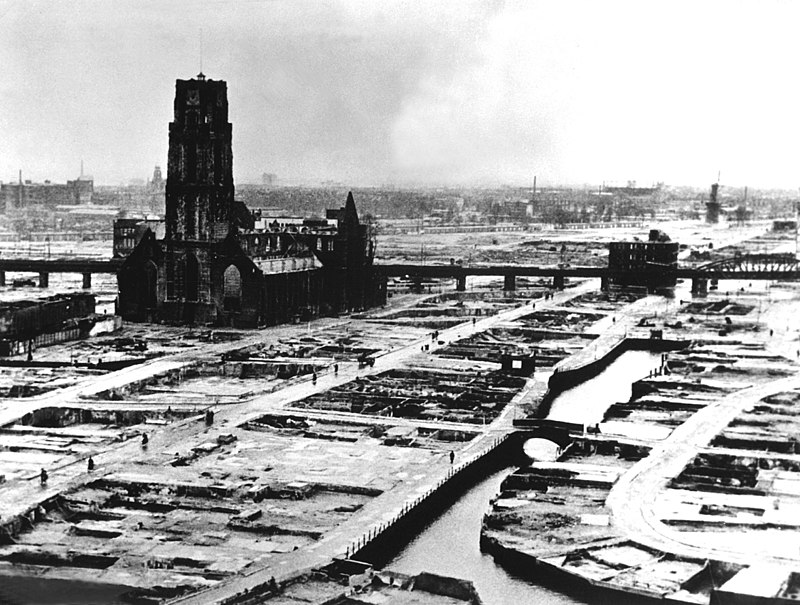
Led first by W. G. Witteveen and his assistant Cornelius van Traa, the post-war reconstructions were characterised by wide streets and sidewalks, as well as the — rather problematic — separation of districts.
The city centre was practically reserved for commercial purposes only, while residential areas were pushed to the outskirts.
By the 1960s, the initial euphoria about post-war reconstruction started to fade. Rotterdammers felt like the new city centre was impersonal and lifeless and were calling for something more vibrant and green instead.
So in the 1970s, Rotterdam invited architects such as Piet Blom and gradually started to transform into the place we know today.
1. Rotterdam Centraal: the gateway to the city
A central station is typically the first thing you see when you visit a new place — and the one in Rotterdam does an exceptional job of welcoming you into the world of incredible architecture.
The station underwent a complete makeover and was fully reopened in 2014.
Its prominent metal rooftop, partly covered with solar panels, earned the station the nickname “Station Kapsalon” (referring to Rotterdam’s popular dish).
If you don’t understand why just google the phrase “Rotterdam Station Kapsalon”, and you’ll see.
A few elements from the original station, which was built back in 1957, still remain today. These include the clock on the front facade, the letters spelling out “Centraal Station,” and the two granite sculptures called Speculaasjes.
Maybe you can try and find them on your next visit. 😉 (Hint: they’re on one of the platforms).
2. Markthal: fresh food stalls under one roof
This iconic piece of architecture in Rotterdam proves that the city can overcome just about any obstacle.
De Markthal — or ‘the market hall’ — was born as a solution for a new set of stricter EU regulations about selling meat, fish, and cheese in the open air, as well as the growing housing shortage in Rotterdam.
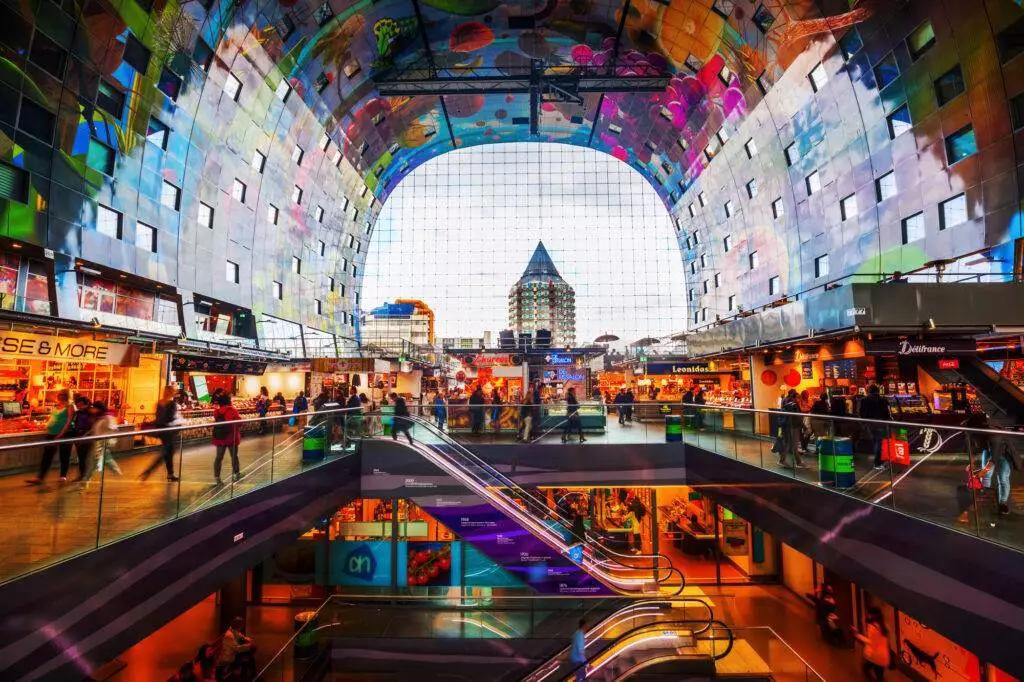
A place for anyone who loves good food, Markthal is home to almost a hundred fresh food stalls, shop units, and restaurants, as well as over 200 apartments.
READ MORE | Dutch architecture in South Africa you can still see today
As you go down the escalators and into the car park, you can see various medieval objects that were discovered during construction.
Besides the countless food stalls and vendors, the one thing you won’t miss as you enter the impressive indoor market hall is that its walls and ceiling are covered with images of giant fruits, flowers, and insects.
This gigantic artwork — titled Horn of Plenty and created by the artists Arno Coenen and Iris Roskam — is one of the biggest in the world and covers an area of about 11,000 square meters.
3. Kijk-Kubus: an urban forest
Living in a city centre usually means that you have to give up being in nature, right? Well, not in Rotterdam. These impressive Cube Houses, designed by architect Piet Blom, are supposed to represent urban woods.
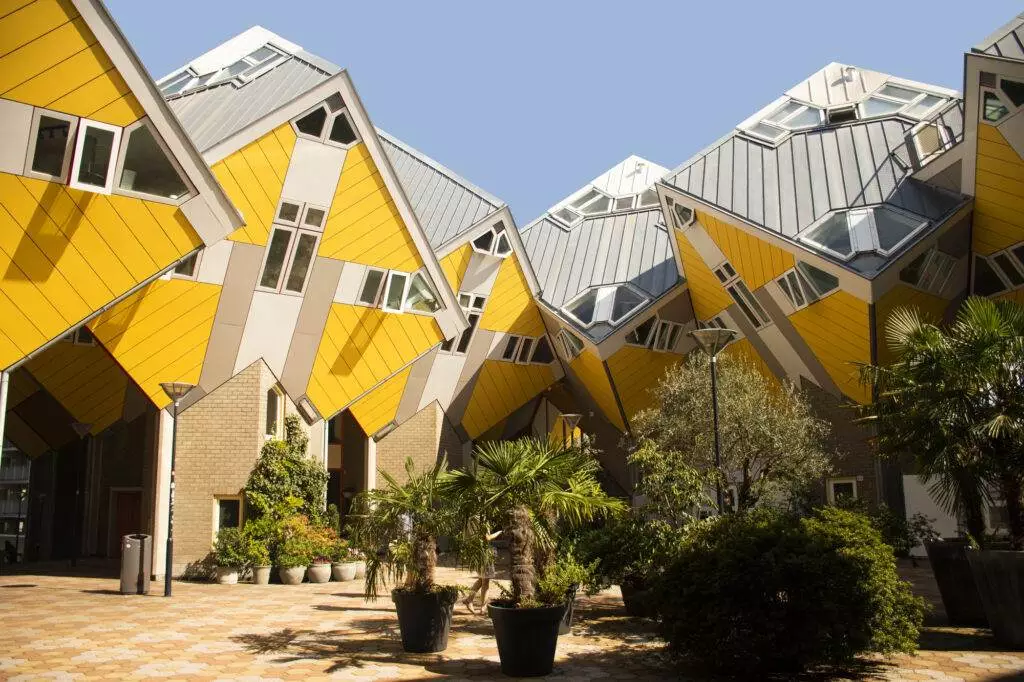
While this may be a bit difficult to grasp as you observe them from afar, a simple walk through this building complex is all you need to feel like you’re truly stepping into the Blaakse Bos.
READ MORE | Where to live in Rotterdam: the ultimate guide to Rotterdam’s neighbourhoods
While we’re not entirely sure how practical it is to live in these Cube Houses (especially when you consider the process of moving in or the shape your furniture probably needs to have if it’s to be placed right on the walls), we can assure you that they are worth a visit.
4. Erasmus bridge
There’s no other landmark that represents the port city of Rotterdam better than the Erasmus Bridge. It stretches over the river Maas, connecting the city centre with the neighbourhood of Kop van Zuid.
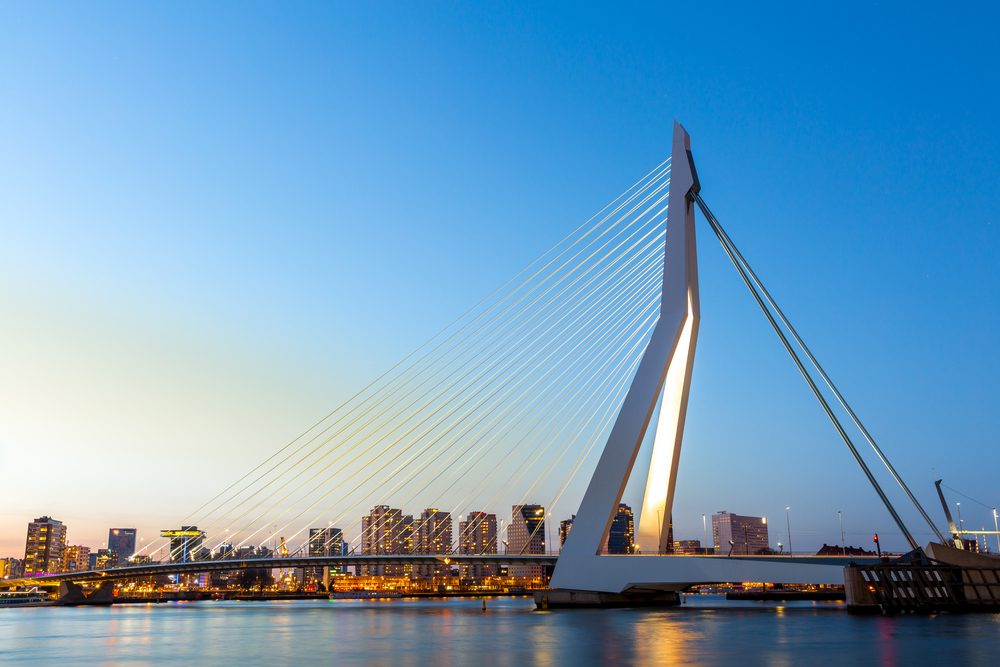
Named after the city’s famous scholar Desiderius Erasmus, Erasmusbrug is 808 metres long and weighs as many as 1700 adult elephants.
Fun fact: the bridge actually had to be closed just four days after it opened in 1996. Several cables were shaking in a strong wing, which led to the movement of the road surface.
However, the problems were quickly fixed, and a few days later, people were able to stroll over Erasmus Bridge again.
READ MORE | What would Amsterdam and Rotterdam look like if they had mountains? (Pictures inside!)
Just like many other things in the Netherlands, Erasmus Bridge has a nickname — De Zwaan (the swan).
It does require a bit of imagination to see how this giant piece of steel resembles an actual swan, but if you look at it from above (for example, from the top of the Euromast tower), it becomes a bit clearer.
5. De Rotterdam
De Rotterdam — a building complex of three interconnected towers — got its name after the famous ship SS Rotterdam, which transported Dutch immigrants to America in the late 19th and 20th centuries.
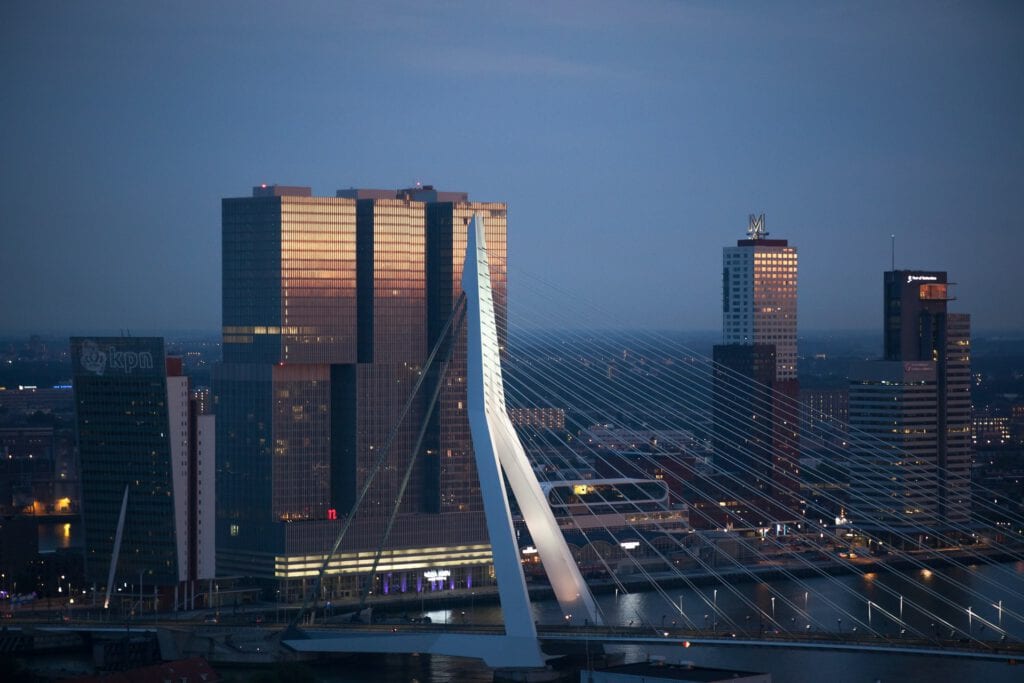
Located on the south side of the city, it’s over 150 metres tall and has 45 floors, which makes it the sixth tallest building in the Netherlands (the top five are also located in Rotterdam, in case you were wondering).
READ MORE | 12 World Heritage Sites in the Netherlands: the country’s best monuments
Also known as the “vertical city,” De Rotterdam houses commercial office spaces, residential apartments, cafés, restaurants, and even the luxurious Nhow Hotel.
With a total floor space of about 160,000 square metres, it’s supposedly the largest group of buildings in the Netherlands.
6. Museum Boijmans van Beuningen Depot
The Depot of Museum Boijmans Van Beuningen is one of the latest additions to Rotterdam’s urban landscape and the first art storage facility in the world to open its doors to the public.
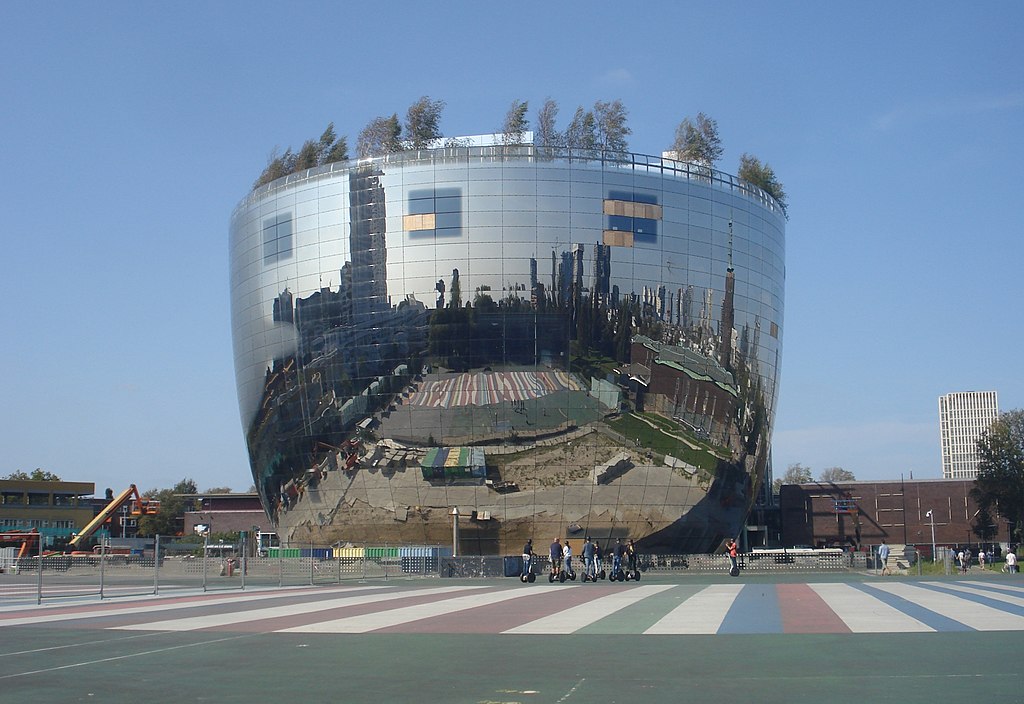
Museum Boijmans Van Beuningen has acquired more than 150,000 artworks over its 170 years of existence, and the Depot was born out of a desire to share these pieces with as many people as possible.
Open since the summer of 2021, the depot gives visitors a unique behind-the-scenes look into the world of art conservation, art restoration, and museum management.
To top it off, visitors have free access to the rooftop garden, which offers panoramic views of the city.
7. Witte Huis: where past and present come together
Rotterdam is a city of contrasts, and the Witte Huis is where history and modernity really unite.
Built between 1897 and 1898 in the Art Nouveau style, it was the very first skyscraper in Europe and, for a long time, remained the tallest building in the Netherlands.
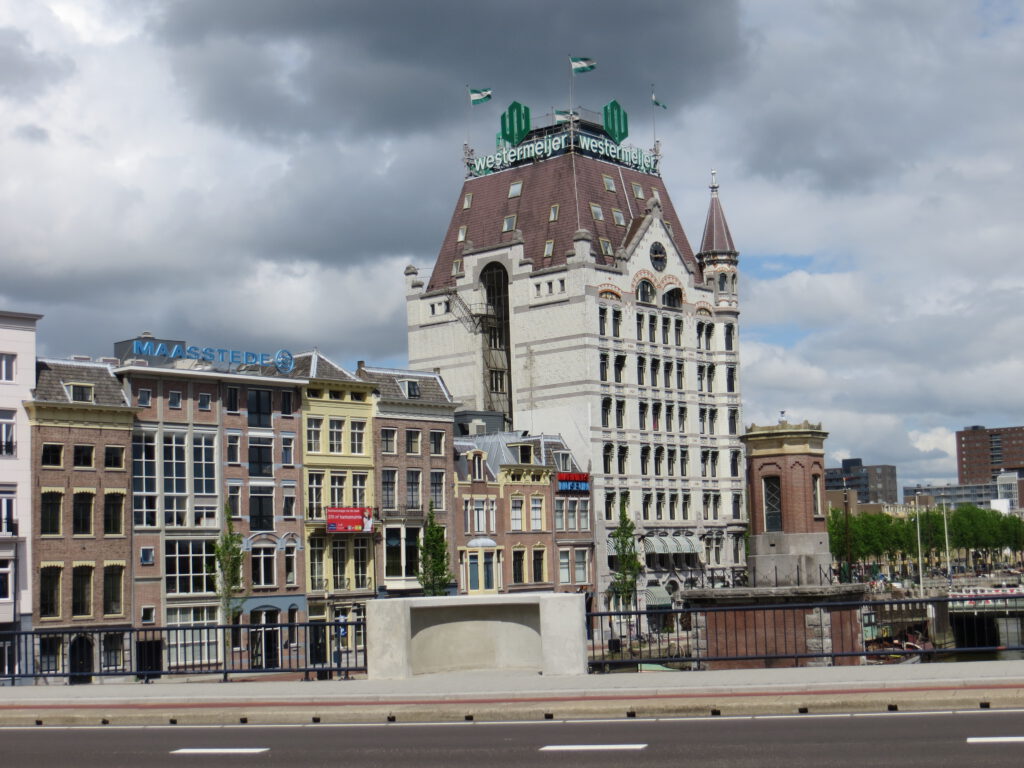
The idea to build the Netherlands’ “White House” came from Gerrit van der Schuijt, who was inspired by the many skyscrapers he admired on his travels to New York.
He and his brother Herman, then in their 30s, already owned a couple of buildings in the Wijnhaven area, so they simply decided to tear them down to make space for the new building.
READ MORE | 6 Things to do in Rotterdam in the summer
Their plan to build an eleven-story skyscraper was met with a lot of scepticism, as buildings back then were no more than five floors high.
However, the 43-metre tall Witte Huis — fully equipped with central heating, a telephone office, gas, and electric light — proved to be a success.
Surrounded by modern high-rise buildings today, Witte Huis is one of the few survivors of the Rotterdam bombing of 1940 — only the bullet holes in the building’s facade remind us of this dark chapter in the city’s history.
8. Hotel New York
Another survivor of World War II in Rotterdam, Hotel New York, formerly served as the headquarters for the Holland America Line — a cruise line transporting passengers and cargo between the Netherlands and North America. The hotel officially opened its doors in 1993.
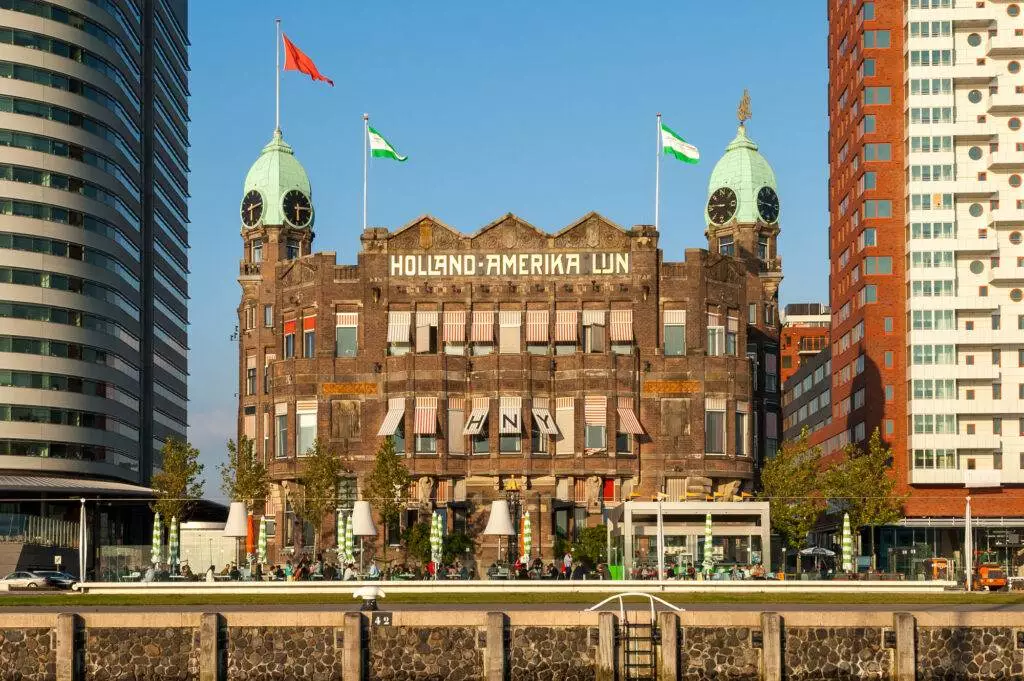
Step back in time and into the shoes of the many immigrants who left their homelands behind and arrived with the Holland America line as you sip on a cocktail in the hotel’s basement restaurant with its charming 1920s and 1930s interior.
9. Van Nellefabriek
UNESCO World Heritage Site, the most important Dutch industrial monument, and a textbook example of the Nieuwe Bouwen architectural style — all this is Rotterdam’s Van Nelle Factory.
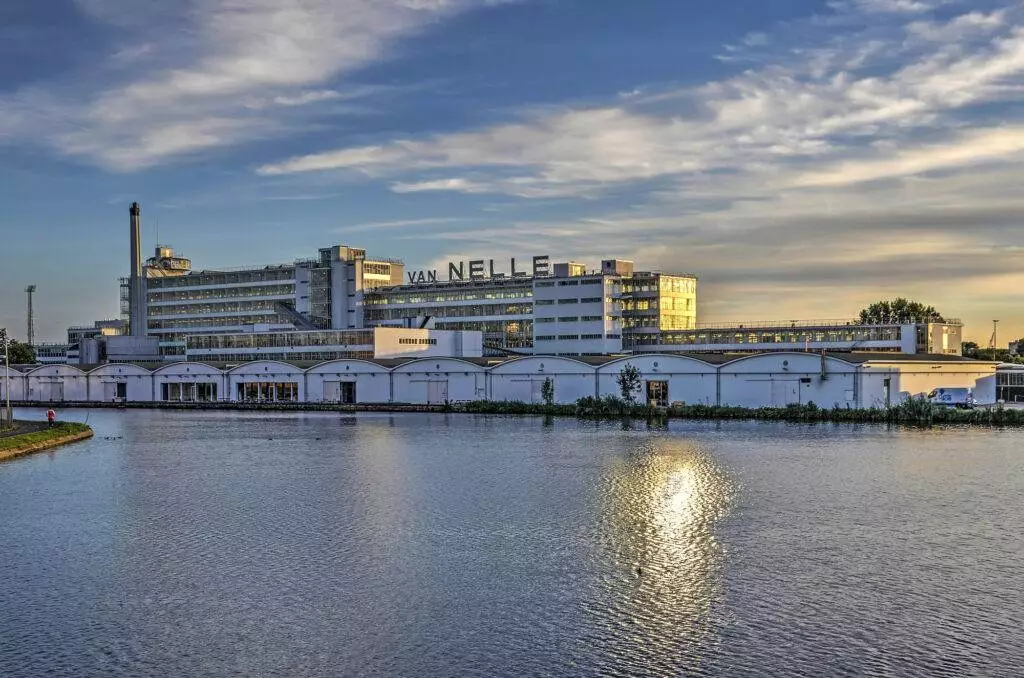
Designed by Johannes Brinkman and Leendert van der Vlugt, it was praised by many artists and architects and even described as “the most beautiful spectacle of the modern age” by the famous Le Corbusier.
Van Nelle served as a tobacco factory up until the 1990s. It was renovated in 2000, and now it’s home to various media and design companies, events, and conferences.
10. Timmerhuis
Timmerhuis — the “cloud of glass and steel,” as it was nicknamed by the OMA architect Reinier de Graaf — is an extension of the historic Stadstimmerhuis from the 1950s, which was a municipal building from which the city’s reconstruction after WWII was coordinated.
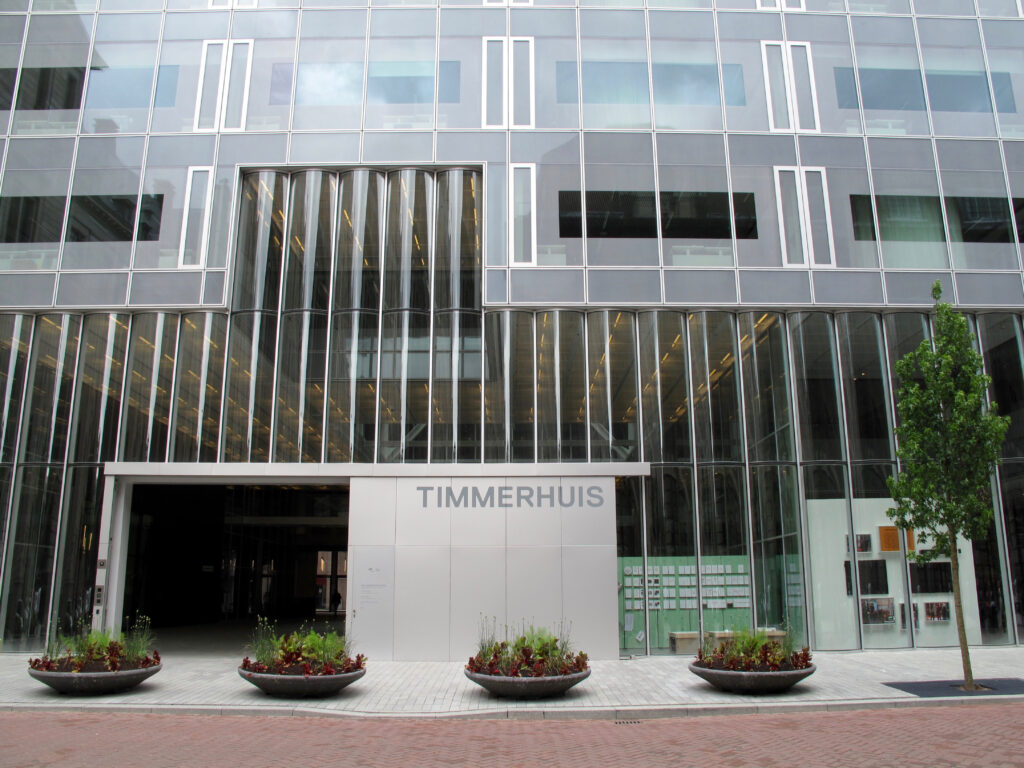
Timmerhuis is a multifunctional building, which now houses offices, apartments, shops, as well as Museum Rotterdam.
11. McDonald’s at Coolsingel
As much as we’re aware that McDonald’s doesn’t need more promotion, our list wouldn’t be complete without this building.
With its golden facade and a beautiful spiral staircase, this is probably the most beautiful McDonald’s you’ll ever see.
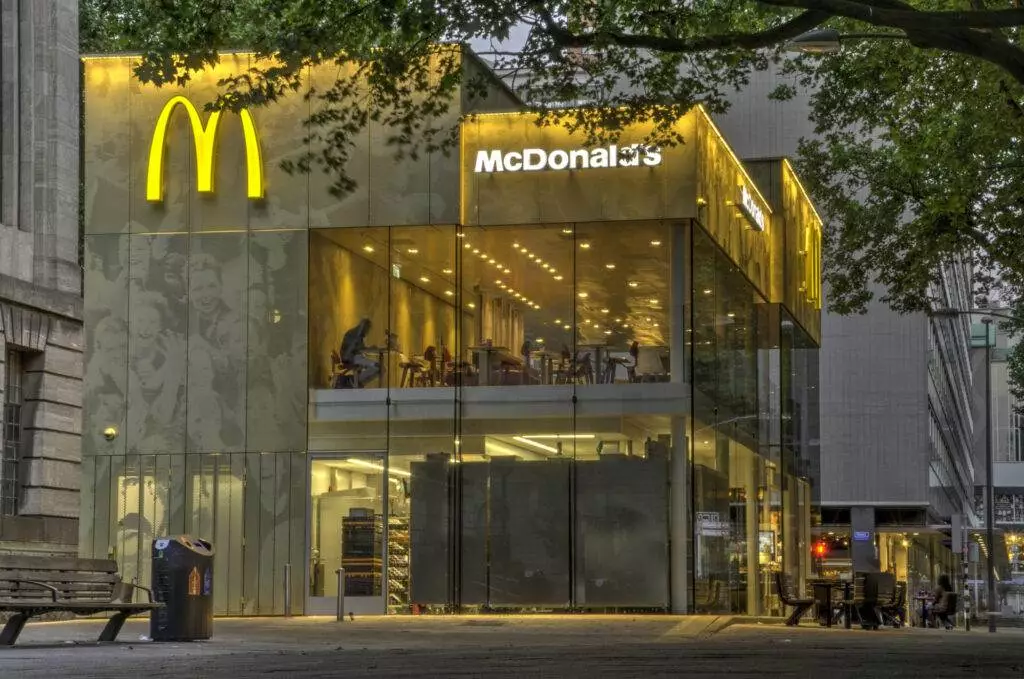
However, this piece of architecture in Rotterdam hasn’t always been the prettiest. The original building was actually voted the ugliest in the city, and the council wanted to demolish it.
But McDonald’s had it on the lease for another 40 years, so it was instead decided that a new, more aesthetic building, which blends well with the surroundings, would take the place of the old one.
You can see for yourself whether this goal was accomplished. 😉
Have you visited any of these landmarks before? Which ones do you think should be added to the list? Let us know in the comments! 👇
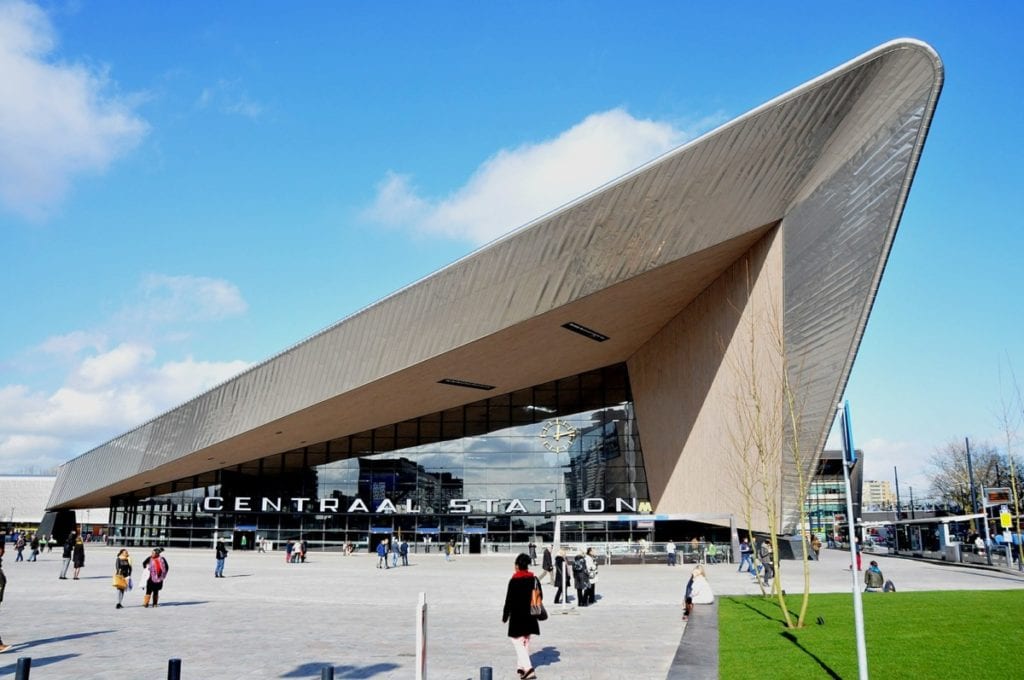

[…] Architecture in Rotterdam: 7 Buildings that prove Rotterdam is the best […]
[…] you follow DutchReview a bit you by now should know that we have a certain fondness for the architecture of Rotterdam, pretty pics of it and glorious sunsets in general. So when we stumbled upon these photos of […]
[…] Both don’t cover it completely, think about it as the fun you’re having when reading an article on Rotterdam’s architecture before the visit to the town […]
[…] you probably saw before). Well for dinner – the KUA taco bar is right next door. The cube houses are also nearby, and the ‘Oude haven’ (old harbor) is a great place to go for a […]
[…] to its war-torn history, Rotterdam was basically built up from scratch. This meant that it was an architects playground. As a result, it hosts some impressive sights such as Rotterdam Centraal Station, De Rotterdam, the […]
[…] traditional Dutch city. It’s the king of urban development and the city is quite literally, full of modern architecture. Just before you thought Rotterdam has finished with all that, then you thought wrong. Here are 7 […]
[…] Both don’t cover it completely, think about it as the fun you’re having when reading an article on Rotterdam’s architecture before the visit to the town […]
Scheepmakerspassage and red apple would be better examples of modern residential architecture